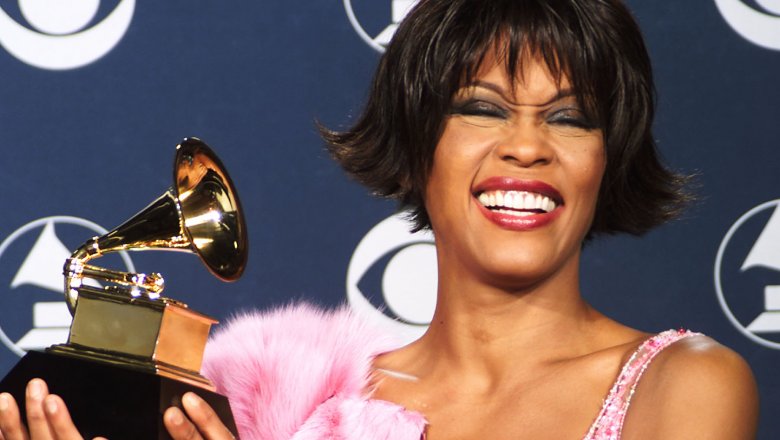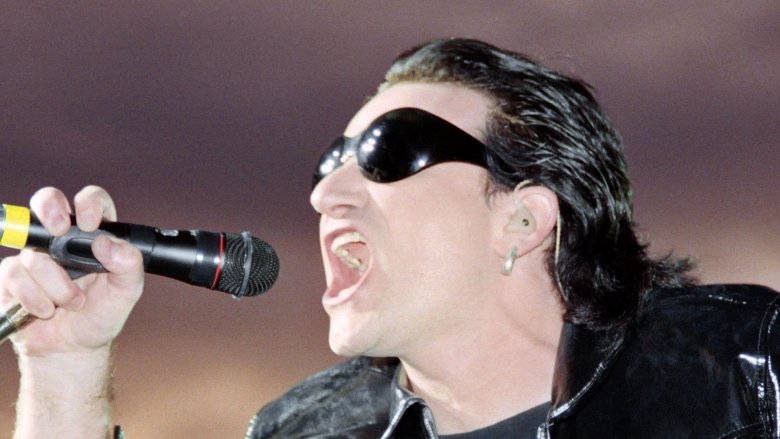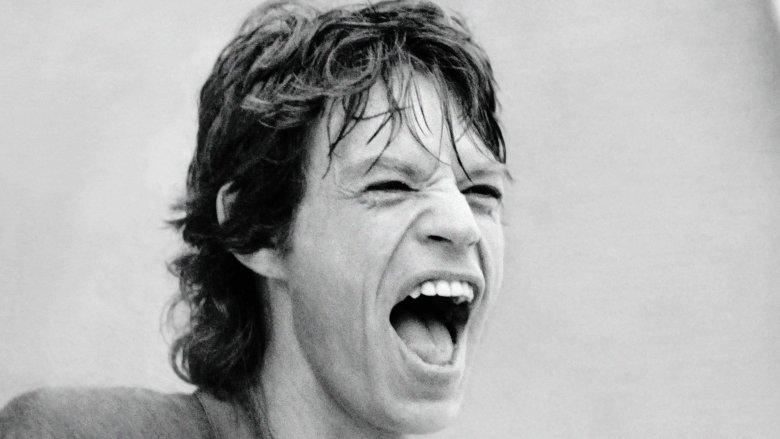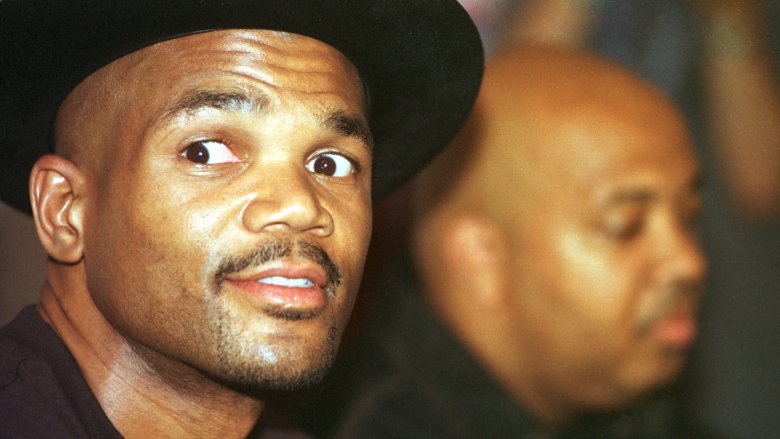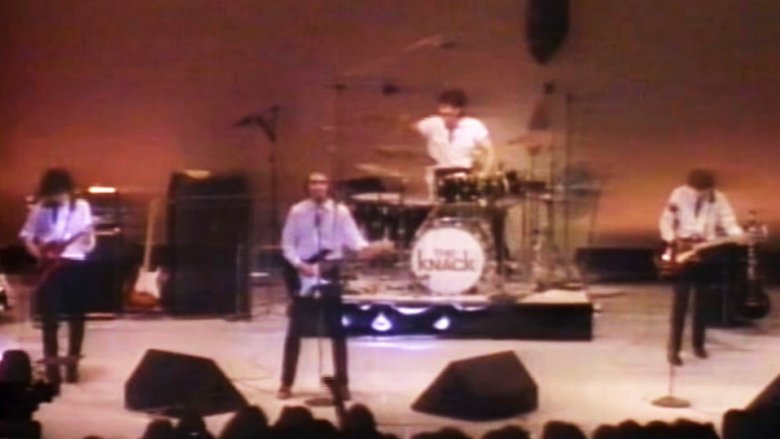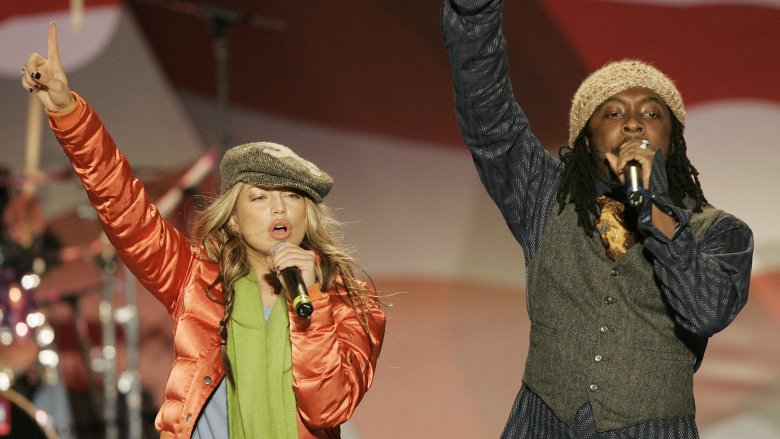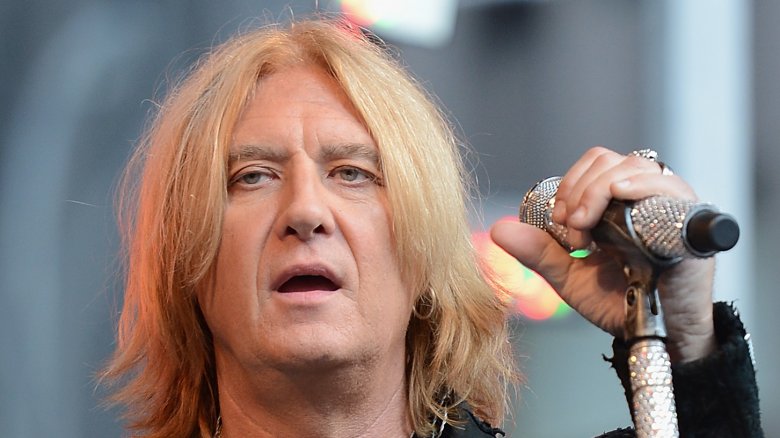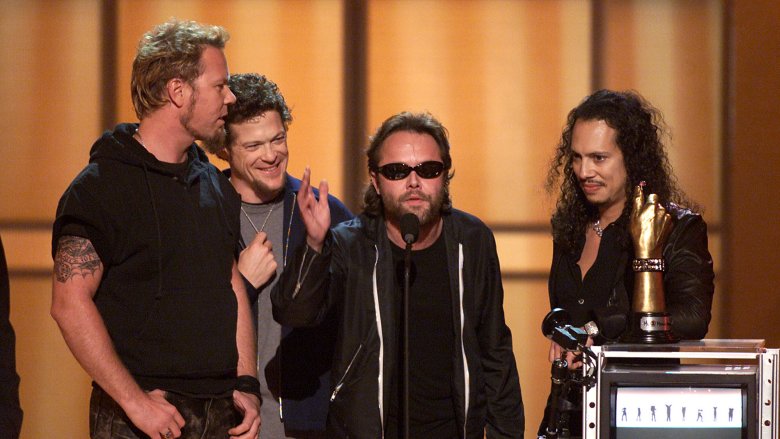Musicians Who Got Worse Once They Got Rich
You know how it is — one week you're rocking local venues for 1,000 sweaty fans, the next you're getting called up to open for some big name on their latest farewell tour. A few months later, you're selling a few hundred thousand copies of your debut EP, and presto, you're on the fast track to a big ol' major label recording contract. Okay, maybe you don't know how that is, but we have it on good authority that this kind of thing happens to musicians all the time.
Just ask these musicians, who began as immensely buzzy new acts taking their chosen genres in important directions, before fate intervened and handed them huge golden platters stacked with bundles of Benjamins, as fate is wont to do. Basically, if you're a musician and you want to maintain your artistic integrity to any degree, you might do well to develop a severe allergy to money. You want proof? Here ya go.
Houston, we have several problems
In the '80s and '90s, Whitney Houston ruled pop music much like Michael Jordan ruled basketball, but without all the overly aggressive defense and sick dunks. Her self-titled 1985 debut sold 12 million copies, and 1987's Whitney and 1990's I'm Your Baby Tonight were also wildly successful; the soundtrack to 1992's The Bodyguard, in which she also starred, unseated Saturday Night freaking Fever as the best-selling soundtrack of all time. Signed at 21 by the legendary music mogul Clive Davis, Houston became Arista's top-selling artist of all time — a feat for which she was rewarded in 2001 with a big, fat, five-album contract worth a staggering $100 million. Then the dark clouds rolled in, the ominous music swelled, and things went totally pear-shaped.
By this time, Houston was deep into a cycle of drug abuse, helped along by an astonishingly toxic relationship with ex-husband Bobby Brown. Her once-stupidly powerful voice was starting to falter, and the first album under her new deal — 2002's Just Whitney — was met with the most mixed reviews of her career. A holiday album followed the next year, and it wouldn't be until 2009 that she would come through with I Look to You, which was only a bit of a critical rebound and, unfortunately, her last album. Houston passed away in 2012, never having regained anything even close to her early form and leaving behind a legacy that's more cautionary tale than inspiration.
It happened to U2
Today, U2 is known as that band full of old guys who simply will not stop attempting to rock. But in 1993, they were riding a big ol' hot streak. With releases like 1984's The Unforgettable Fire and 1987's absolute monster smash The Joshua Tree, the band had sold an unreasonable 50 million records by the time label Polydor got around to rewarding them with an even more unreasonable $200 million, six-record deal. The future was so bright that Bono had to wear shades — which he never took off, despite the fact that said future dimmed considerably after their big payday.
Beginning with 1997's Pop, the band began to slide at roughly the same time that Bono was doing everything he could to cement his reputation as a pompous, punchable blowhard. 2004's How to Dismantle an Atomic Bomb and 2009's No Line on the Horizon clocked in as critical low points, leading to a five-year hiatus at the end of which the band and Apple decided to just go ahead and download 2014's poorly received Songs of Innocence to your iPhone whether you wanted it or not. (You didn't.) Their follow-up Songs of Experience garnered slightly more favorable reviews, but so far, Bono's declaration that the aging rockers may still have their best work ahead of them has resolutely failed to pan out.
But when will they roll to the retirement home?
Speaking of aging rockers who who don't seem to know the meaning of the words "quit" or "dignity," the Rolling Stones have been fighting the "too old to rock" label since the '80s; their 1989 tour in support of that year's Steel Wheels was famously mocked as the "Steel Wheelchairs Tour," and that was three decades ago. Amazingly, the beginning of the band's precipitous slide from Greatest Rock Band in the World to Geezers Who Should Please Stop Now can be traced pretty precisely to the point at which they received their biggest payday: 1982, the year the Stones capped off by signing what was then the richest contract ever.
CBS records ponied up $50 million to sign the legendary band, who still owed one album to previous label Atlantic. That record would be 1983's Undercover, which received mixed reviews — but 1986's Dirty Work, their first album for CBS, was welcomed about as warmly as your racist Uncle Dave. It was immediately pegged as the band's worst album ever and could perhaps be chalked up to Mick Jagger's burgeoning solo career and Keith Richards' annoyance with same. Whatever the reason, it marked the true start of a swift decline into irrelevance from which the Stones have never recovered. They continue to roll on today, gathering no moss, no critical acclaim, and no new fans.
Kings from Queens abdicate the throne
Run-D.M.C. is inarguably one of the most important acts in the history of rap music. Their ingeniously calculated collaboration with Aerosmith on "Walk This Way" from their third album Raising Hell was the springboard that launched a million signings of struggling rappers (and nearly as many ill-conceived rock-rap mashups). They were the first rap act to go gold, the first to appear on MTV and the cover of Rolling Stone, and the first to land a fat endorsement contract — from Adidas, of which they are famously fond, to the tune of $1 million. Their legacy would have been set in stone had they stopped making music completely after 1986 — and judging from their output, they maybe should have.
While 1988's Tougher Than Leather was seen as an acceptable followup to their masterpiece, the diminishing returns began to come fast and furious thereafter. 1991's Back From Hell was deservedly panned as an attempt to up the band's street-cred quotient while taking several steps backward creatively. 1993's Down With the King yielded one good song — the title track — while employing a gaggle of guest producers and vocalists to paper over the diminishing skills of D.M.C. in particular. After a long hiatus, the group released the universally reviled Crown Royal in 2000, a straight-up wack record which would, perhaps fortunately, be their last. They're in the Rock Hall of Fame, and they deserve to be — but even hardcore fans generally pretend their last three albums don't exist.
Glitter gums up the works
The phrase "pop diva" may as well have been coined specifically to describe Mariah Carey. She of the bananas-crazy five-octave range burst onto the scene with her self-titled 1990 debut album and immediately started smashing chart records. To this day, she is the only artist ever to have their first five singles reach the top of the Billboard chart. She moved records in the '90s like they were going out of style, and after her contract with Sony expired she was rewarded with an insane $80 million, four-record deal by Virgin. It did not pan out well.
This is because Carey set off her new deal by releasing Glitter, the terrible soundtrack to an even more terrible movie which had fans wondering what in heck had happened to the real Mariah. Both were received with all the enthusiasm of your average Rob Schneider movie, and in an eye-popping reversal, Virgin decided only one year after their hot signing to cut their losses. They bought Carey out of her contract to the tune of $28 million, a move that raised eyebrows at the time but has since started to look quite savvy. The musician's star power carried her career through a series of middling albums, but her bizarrely titled 2014 effort Me. I am Mariah... The Elusive Chanteuse tanked mightily, possibly because fans reading the title could confuse it for an unedited biography.
Everything he does, nobody cares about
There was a brief time in the early '80s when Canadian "rocker" Bryan Adams (stay with us here) actually rocked. His catchy, swaggering 1983 single "Cuts Like a Knife" got him massive MTV airplay, and his 1984 album Reckless became a bonafide blockbuster, rocking fans' faces with singles "Run To You," "Summer of '69," and the insanely durable power ballad "Heaven." Reckless was Adams' ticket to the big time, but sleeping on all those piles of money must have really done something to take his edge off because he has in no way been the same artist since.
Despite their rebellious titles, subsequent efforts Into the Fire, Waking Up the Neighbours, and 18 Til I Die saw Adams adopting a decidedly more adult contemporary sound, which may have had something to do with the stunning success of his maudlin 1991 ballad "(Everything I Do) I Do It For You" (from the Robin Hood: Prince of Thieves soundtrack). Adams has kept releasing music ever since. Not that anyone has noticed — not one of his albums has come within shouting distance of the top ten for over 20 years. At least he still has his status as one of the top-selling artists of all time and that giant money bed to comfort him.
Disco slayers victimized by own success
Prior to 1979, the Knack were simply one of the most respected, hardworking bands in Los Angeles. Their 1979 debut album Get the Knack consisted of a tight 12 songs honed to razor-sharpness through endless live gigs, and it might have been remembered as a seminal power-pop record and one of the best of all time from that genre. Might have been, if not for the overwhelming ubiquitousness of lead single "My Sharona," which you may have heard a time or two.
The song that single-handedly murdered disco instantly thrust the band into the national spotlight, but not quite in the way they wanted. One camp viewed them as manufactured frauds, meant to evoke the Beatles with their sound and stage presence. Another (much larger) camp simply saw them as a throwaway novelty act, and a series of poor management decisions (like deciding the band wouldn't do interviews) didn't do anything to alleviate either notion. Beginning with 1981's Round Trip, the exhausted band resurfaced periodically to release nondescript records nobody cared to listen to, never achieving even a glimmer of the stardom afforded them by their first, biggest single. It all might have turned out otherwise had radio DJs picked literally any other song on Get the Knack to promote. "My Sharona" isn't anywhere near the best song on the album, but it is the earwormiest and the bubblegummiest, and the radio edit didn't even include Berton Averre's incredibly killer guitar solo.
Instant lameness, just add Fergie
Once upon a time, the Black Eyed Peas were poised to be the second coming of A Tribe Called Quest, De La Soul, and their Native Tongues brethren. Their acclaimed 1998 debut Behind the Front made a big splash in a hip-hop world then dominated by shiny suits and getting jiggy, and their artistic cred was such that their sophomore effort Bridging the Gap was graced with guest appearances from the likes of Mos Def, Chali 2na of Jurassic 5, De La, and Wyclef Jean. But then, the band decided it was time to expand their lineup, bringing in singer Stacy Ferguson from little-known girl group Wild Orchid to supply backing vocals. Ferguson rebranded herself as Fergie, the Peas got to work on their third album Elephunk, and it all went screaming downhill from there.
Not to say that the Peas haven't had commercial success — for the rest of that decade, they dropped hit record after hit record, all of which sold in ridiculous volume despite the fact that they are objectively terrible. Fergie's addition simply prompted the band to drop any pretense at artistic integrity and go straight for the pop sweet spot, both of which they did with zero hesitation. Today, it's seldom remembered that the band had any early artistic promise. Instead, their legacy lies in their many ker-billion selling, eardrum-shreddingly awful singles like "My Humps" and "I Gotta Feeling." Their early efforts seem more like missives from an alternate universe, probably one in which rappers still recognizably rap.
Pour some sugar on them, then stick a fork in them
Of the hard rock acts to come out of the early days of MTV, Def Leppard rocked perhaps the hardest. Their second album High 'n' Dry went double-platinum thanks to chunky singles like "Bringin' On the Heartbreak," and their 1982 release Pyromania surprised everyone (including the band) by selling 10 million copies. They may have been spelling-challenged, but these boys sure knew how to rock — or at least they did, until the sudden appearance of truckloads of money gave them a severe case of the rockin' amnesia and the boogie-woogie ... poo.
1987's Hysteria debuted a decidedly milder sound while still selling a gazillion copies, mostly on the strength of single "Pour Some Sugar On Me," an annoyingly catchy song with supremely silly lyrics which even lead singer Joe Elliott can't explain. 1992's Adrenalize cemented this change in musical direction, and by 1996 — with the release of the poorly received Slang — they were barely recognizable as the band that once rocked the mohawks off MTV's early audience. They've limped on with several like-minded releases in the intervening years (like 2008's unfortunately titled Songs From the Sparkle Lounge), and even though their self-titled 2015 album managed to crack the Billboard top ten, critics responded to it in much the same way you would respond to a hair in your salad.
What did these guys do with the REAL Metallica?
It's tough to think of a band that pulled as dramatic a musical about-face as thrash kings Metallica. Their first four albums, released from 1983 to 1989, are unassailable classics of the genre. With fourth album ...And Justice For All, the band was threatening to break through to mainstream stardom without compromising the musicians' sound one iota; the dramatic video for "One" — one of the greatest metal songs ever recorded — even garnered airplay on MTV. The thrash kings were poised to become thrash gods — until producer Bob Rock came calling, lugging along suitcases full of cash behind him.
Their 1991 self-titled release — colloquially known as The Black Album — catapulted the band to untold heights of commercial success while watering down their sound to within an inch of its life. Being in a perpetual drug- and alcohol-induced haze, the band members just kind of rolled along with this development, and before anybody knew what was happening they were literally the biggest band in the world. They've relied on their thrash-lite sound to move just tons of records ever since, and even their attempt to rope old fans back in with a "return to their roots" record — 2008's Death Magnetic, produced by Rick Rubin — is remembered mostly for being the nadir of that decade's loudness wars. They still sell tons of records, but it certainly doesn't take artistry to do that — and their fans have never forgiven them for rocking way less hard than they're capable of.

